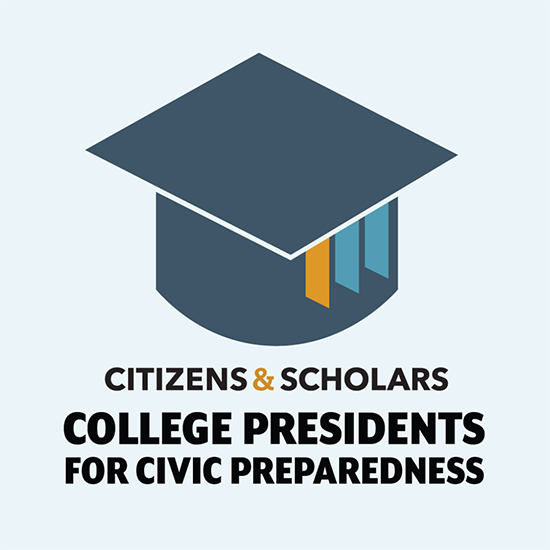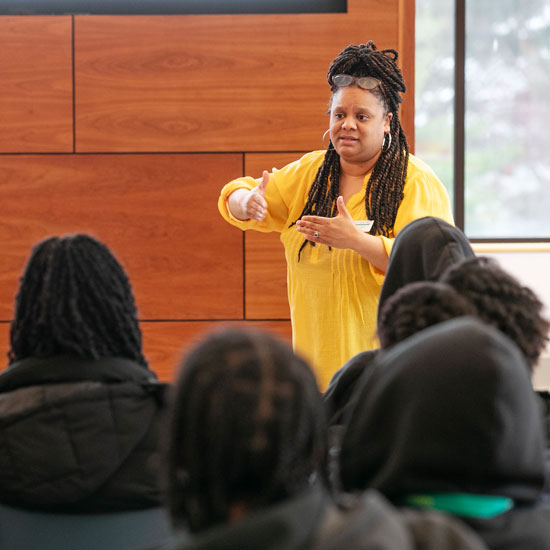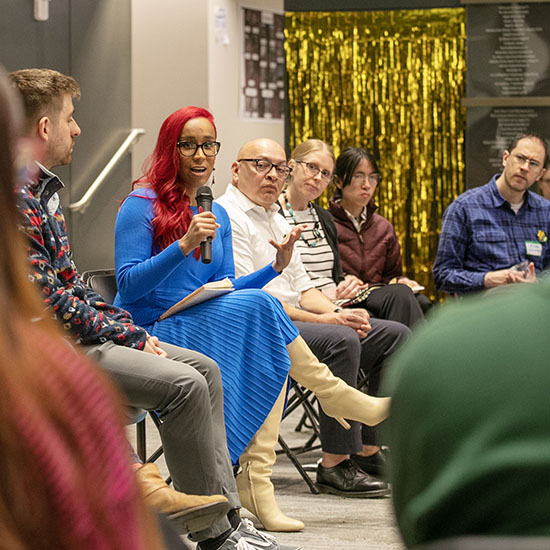Skidmore faculty discuss attack on U.S. Capitol
Skidmore political science, history and Black studies faculty gathered online to grapple with the historical significance and impact of the Jan. 6 mob attack on the U.S. Capitol, and affirmed the central role colleges can play in countering the type of misinformation that led to the violent events.
President Marc C. Conner opened the Jan. 7 faculty panel, organized and moderated by Dean of the Faculty and Vice President for Academic Affairs Michael Orr, by reiterating the College’s forceful condemnation of the assault, outlined in a written statement earlier in the day.
“These events contradict our College’s very mission and violate our principles,” Conner said, noting that Skidmore as an institution of higher learning stood in a unique position to discuss the events in Washington, their causes and their ramifications.
Professor of Political Science and constitutional expert Beau Breslin assigned partial blame for troubles in Washington to unanswered questions in the Constitution. He noted the brevity of Article II, which was left short because of the framers’ expectation that the nation’s first president, George Washington, would provide the model for future presidents, and mentioned President Donald Trump’s unwillingness to follow precedent.
The Constitution “doesn’t talk about things like whether a president can pardon himself or those things that are now at the heart of our disagreement. The vagueness of the entire constitutional text is problematic from a 21st-century perspective,” said Breslin, who also stressed the very high incumbency rate for members of Congress.
Professor of History Jennifer Delton noted Jan. 6 began with the election of the first African American senator from Georgia, Raphael Warnock, and culminated in the storming of the halls of Congress by a mob carrying Confederate flags, evoking the legacy of the U.S. Civil War.
“It’s hard not to think of 1865 and the many ways that the United States keeps reliving 1865,” Delton said. “If you are a historian of the United States, it is Reconstruction all over again.”
Delton framed the exceptional events of the day in terms of two broad trends in American history: a tradition of white reaction against Black political progress and an “irrationalist” tradition of opposition to technocracy and expertise as described by the noted late historian Richard Hofstadter.
Professor and Director of Skidmore’s Black Studies Program Winston Grady-Willis spoke of the challenge the troubling events posed to the idea of U.S. exceptionalism in the world.
“When this happens in other countries, we often scoff and talk about how this isn’t going to happen in the U.S., but it did,” he said.
Grady-Willis noted a longstanding “double standard” in law enforcement whose lax posture allowed a largely white mob to storm Congress but has assumed a much stronger approach toward Black Lives Matter protests. He also described the “arrogance” and “ignorance” that informed the actions of the rioters.
“At Skidmore we don’t always agree with one another, but our larger mission and project absolutely stands in opposition to this,” he said.
Assistant Professor of Political Science Christopher Mann, a specialist in electoral politics, attributed the spread of misinformation that shaped the day to a broader trend associated with a long-term decline in the U.S. news media.
“The former U.S. senator from New York, Daniel Patrick Moynihan, used to famously say that everyone is entitled to their own opinion but not their own facts. That is no longer true in the United States. People live in their own information ecosystems,” Mann said. “What we saw (on Jan. 6) was one culmination of a political environment that is unmoored from any shared set of facts.”
Mann also described a continuing decline in confidence in the U.S. elections system. “We are nowhere exceptional in the way that our democracy operates,” he added.
Associate Professor of Political Science Flagg Taylor, a political theorist, considered a question of tension between tyranny and democracy raised by Plato and discussed by President Abraham Lincoln in his 1838 Lyceum Address.
“Our founders thought long and hard about how we might create a political order that might prevent the rise of demagogues, prevent the passions of the people from being inflamed,” Taylor said. “I think we need to get back to the hard work of reminding ourselves of the ways our constitutional order is supposed to function, and the importance of persuasion and deliberation.”


